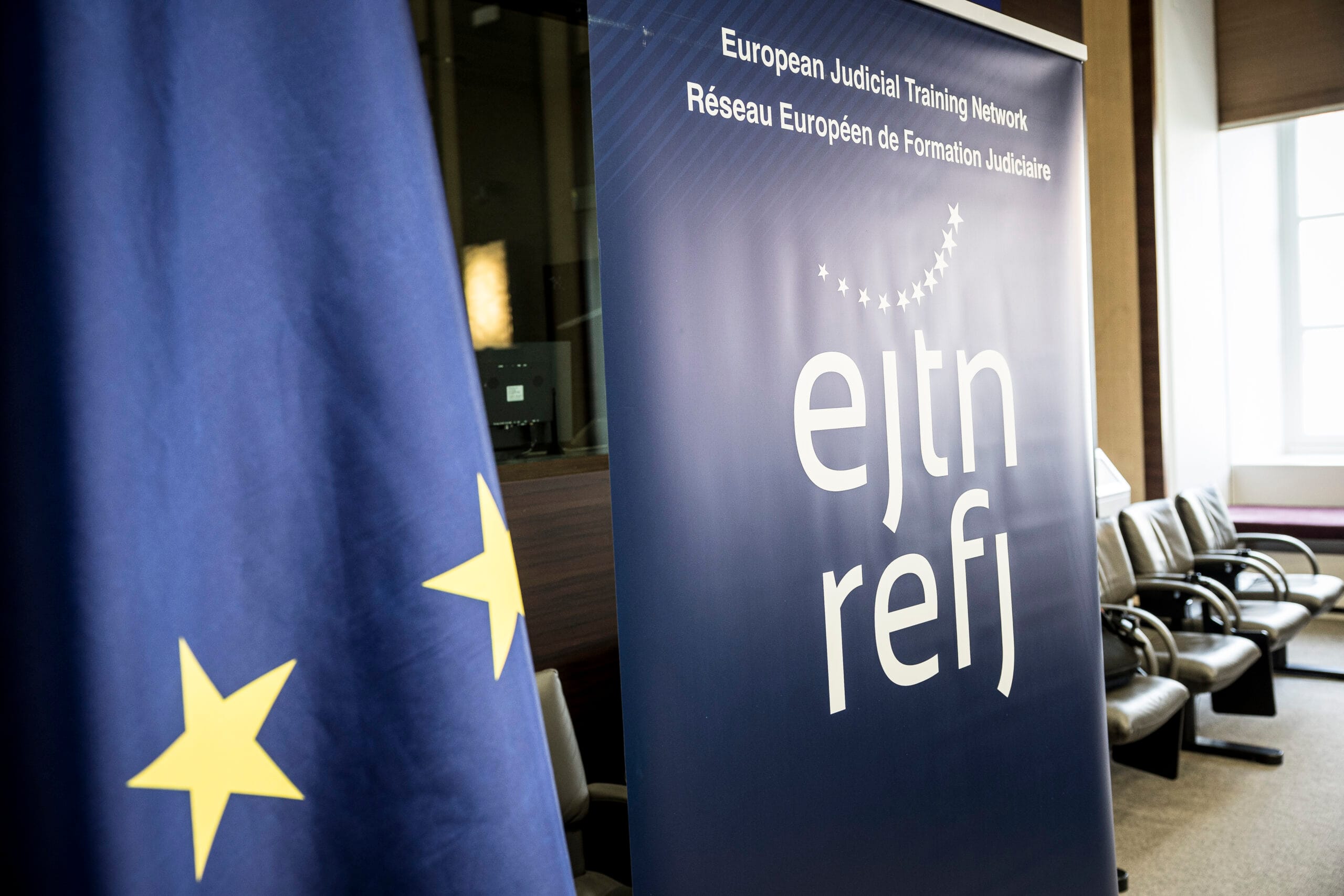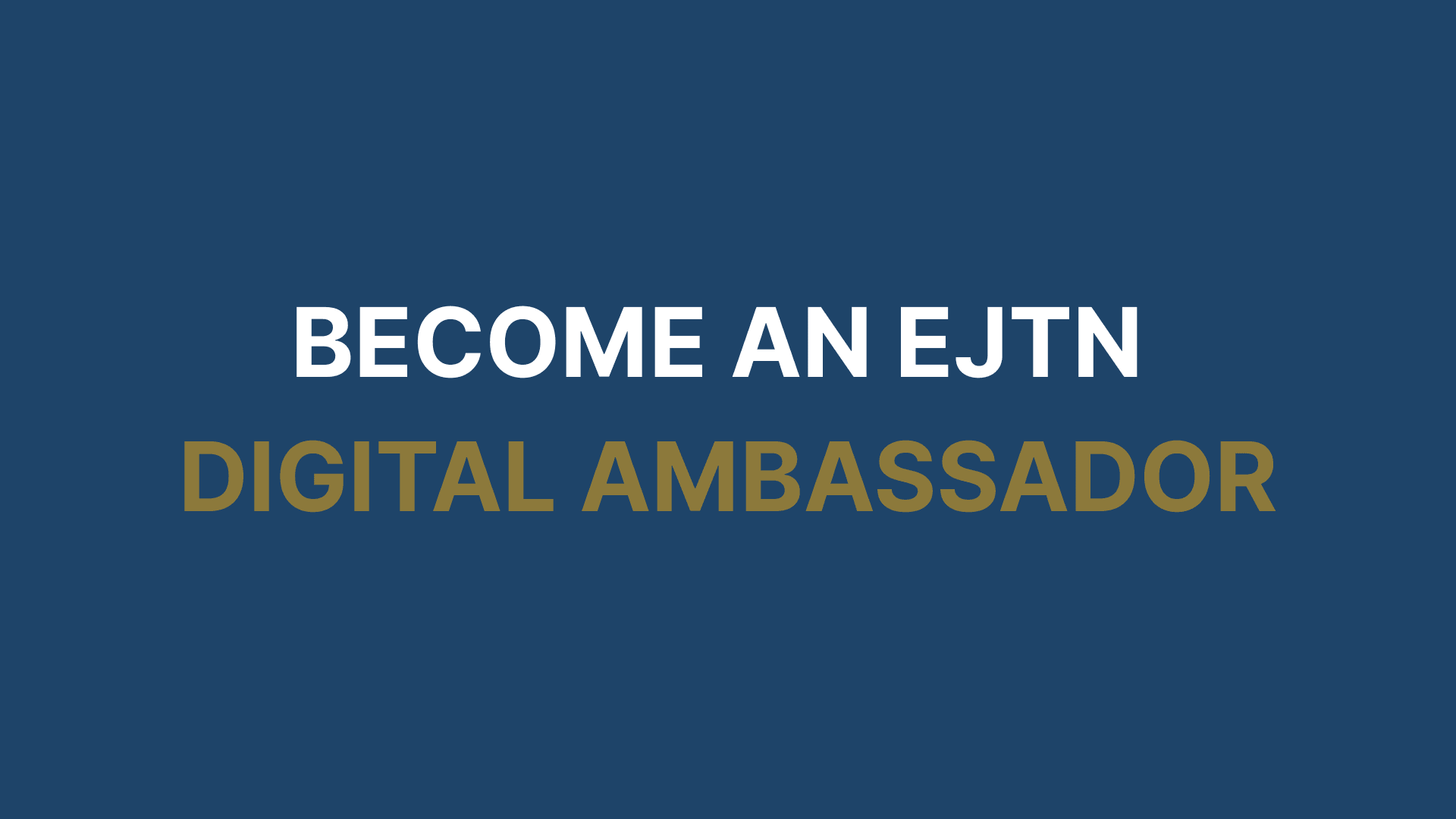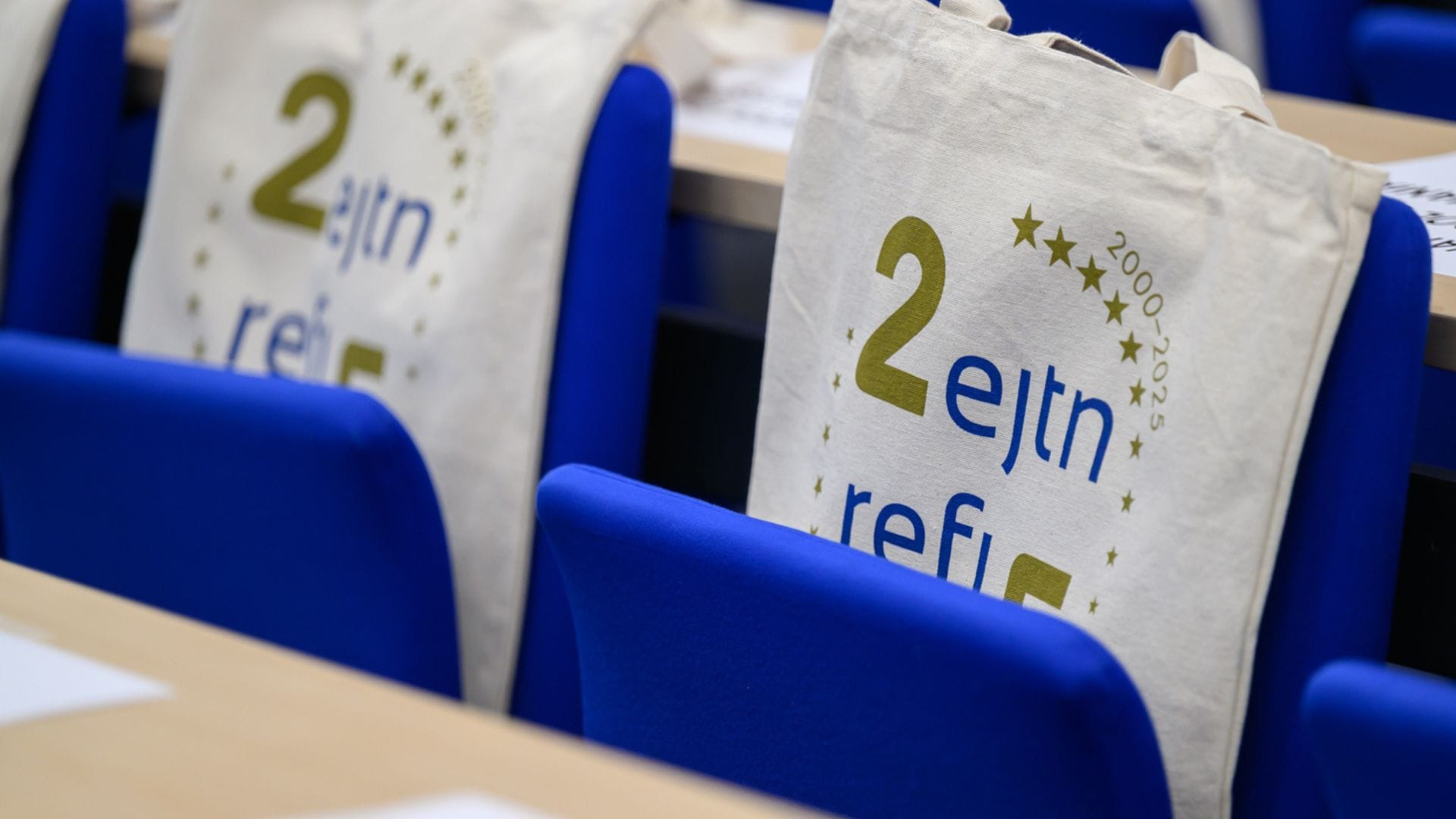As the European Judicial Training Network (EJTN) gears up for a new cycle of training activities, the EJTN Working Groups and Sub-Working Groups have been meeting and actively planning initiatives aimed at advancing judicial training across Europe, including online activities, improved interactivity and innovative training solutions.
Common themes emerge across all Working Groups
This autumn, the Working Group discussions have been heavily centred on online activities and designing initiatives which are both attractive and interactive. To support this process, as of 2025, the Kirkpatrick Level 3 evaluation will be applied, and it will provide deeper insights into the effectiveness of EJTN’s training programmes.
Below is a short recap of the key points from each Working Group and Sub-Working Group meeting.
Working Group on Digitalisation – 10 & 11 September
Digital transformation of the justice sector remains one of the core priorities for EJTN. The Working Group members discussed, among others, the integration of Artificial Intelligence into justice systems, the importance of e-learning and the overall evolution of digital justice. Close collaboration with other EJTN Working Groups and Sub-Working Groups remains a priority, so that the efforts and insights on digitalisation can be applied to all EJTN activities, regardless of the portfolio. The members will also implement a training needs assessment survey to tailor future digital training initiatives.
Several key events organised by this Working Group are also on the horizon. In October, a webinar will delve into the challenges of harmonising digital justice across the EU. Hosted by experts Antonella Ciriello and Teresa Muñoz-Rej, the webinar will explore 24 acts related to digital justice, with a focus on both civil and criminal justice cooperation. Looking further ahead, the ‘Digital Passport for Magistrates’, scheduled to take place in 2025, will be a cornerstone event that offers hands-on training in digital skills. A series of webinars and podcasts will provide further opportunities for professional development on topics such as AI and best practices in e-learning.
Working Group on Linguistics – 19 September
With in-person seminars now taking place online for the Linguistics portfolio, the Working Group on Linguistic shas introduced 13 new online conversation classes for this autumn. These are aimed at enhancing participants’ language skills. Plans are also underway to organise face-to-face seminars in 2025, ensuring continuity and depth in all training activities.
Working Group on Judicial Training Methods – 26 & 27 September
The Working Group on Judicial Training Methods (JTM) has set up a ‘Women in Justice’ project, which aims to develop further the training offer promoting skills for women within the judiciary. The group has been engaged with innovative projects, such as a Leadership Training Hub or the endorsement of guidelines for online training activities. The project of ‘Comparative study on judicial trainings’ is moving further and a questionnaire will be soon sent to all the members. Finally, the group reviewed and developed its 2025 training offer, notably by proposing activities targeting skills for judicial leaders and trainers to acquire in digitalised justice.
Working Group on Programmes – 8 & 9 October
The Working Group on Programmes will conduct a detailed review of its 2024 activities, highlighting key achievements and addressing the challenges faced throughout the year. The Working Group members will also discuss the effectiveness of new training programmes and incorporate participant feedback to identify areas for improvement. Adapting to the rapidly evolving judicial landscape, particularly with the rise of digitalisation, will be a major priority to ensure the relevance of training content to address emerging judicial. The Working Group will also closely collaborate with other EJTN Working Groups, so that the transversal themes such as human rights and fundamental freedoms, judicial ethics and digital transformation are seamlessly integrated into the broader training agenda.
Looking ahead to 2025, the Working Group will discuss the importance of flexibility and foresight in planning future activities. Digital skills are recognised as a critical area of focus for justice professionals.
Working Group on Exchange Programme – 17 & 18 October
The Working Group on Exchange Programme will focus on several topics, including the production of information materials and videos as well as the Ad-Hoc Group on Evaluation Tools, which met on 1 October to assess its progress. Moreover, efforts to enhance cooperation with other EJTN Working Groups have been actively discussed.
A second Ad-Hoc Group has been established to define best practices for Court Staff exchanges, further enriching the ongoing exchange programmes. Several call for applications are issued this autumn for a range of exchange opportunities, including General, Specialised and Judicial Leader exchanges, EJTN-CEPOL exchanges as well as Judiciary Learning Grants and Regional exchanges.
Administrative Law Sub-Working Group – 5 September
The Administrative Law Sub-Working Group has been focused on transitioning autumn activities to online formats and enhancing its communication strategies. The Sub-Working Group also finalised its 2025 calendar, which will feature a mix of in-person and online activities, including workshops, webinars and podcasts.
Future discussions will focus on selecting the most effective formats for the six new online activities and exploring blended learning opportunities.
Human Rights and Fundamental Freedoms Sub-Working Group – 16 & 17 September
The Human Rights and Fundamental Freedoms Sub-Working Group is focused on developing online seminars which will run in 2024 and 2025, and which address contemporary human rights issues. Looking forward, the Sub-Working Group plans to create specialised modules for Judges and Prosecutors, with a focus on complex human rights cases, while exploring collaborations with other EJTN Working Groups and Sub-Working Groups in order to integrate human rights perspectives into broader judicial training programmes. With a special focus on the close cooperation between EJTN and ERA, a seminar on independent judges as a cornerstone of the Rule of Law will be one of the partner seminars to take place in face-to-face format. This shall underline the significance of the Rule of Law in Human Rights and Fundamental Freedoms and its significance in judicial training.
Criminal Justice Sub-Working Group – 24 September
Civil Law Sub-Working Group – 25 September
Both the Criminal Justice and the Civil Law Sub-Working Groups are working on implementing and developing new online seminars for the remainder of this year as well as for 2025, with additional plans for in-person seminars next year to ensure comprehensive training opportunities across both domains.
We wish all our stakeholders a fruitful and engaging training season with EJTN!
For more information on all available training activities, visit our Online Training Catalogue, and don’t forget to follow us on LinkedIn for up-to-date news.




